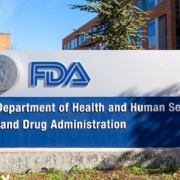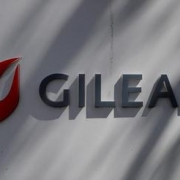Merck’s Keytruda plus chemotherapy secures FDA approval for biliary tract cancer
Merck’s Keytruda plus chemotherapy secures FDA approval for biliary tract cancer
Published: Nov 02, 2023
By Tyler Patchen
BioSpace
Merck’s blockbuster cancer drug Keytruda has wrapped up another approval from the FDA, its sixth indication in gastrointestinal cancers. This time for the treatment of biliary tract cancer.
The company announced Wednesday that its anti-PD-1 therapy has been approved to treat patients with locally advanced unresectable or metastatic biliary tract cancer in combination with gemcitabine and cisplatin chemotherapy.
Biliary tract cancer, or bile duct cancer, is a rare form of cancer that forms in the tubes that carry bile in the body. According to the American Cancer Society, this form of cancer can also develop in the gallbladder and the liver as well as in the bile ducts. The Mayo Clinic also notes that biliary tract cancer primarily affects patients over 50.
“Many patients with biliary tract cancer are diagnosed with locally advanced or metastatic disease, at which point they are not eligible for surgery and face poor survival outcomes with limited treatment options,” Marjorie Green, senior vice president and head of late-stage oncology, global clinical development, Merck Research Laboratories, said in a statement.
Green added that the FDA approval offers patients a new treatment option for certain patients with locally advanced unresectable or metastatic biliary tract cancer “that has shown an overall survival benefit compared to chemotherapy alone.”
The FDA approval was based on results from Merck’s Phase III KEYNOTE-966 trial in which the drug and chemotherapy had a statistically significant improvement in overall survival compared to chemotherapy alone. According to Merck, the combination had reduced the risk of death by 17% and earned a p-value of p=0.0034. The average time for overall survival was 12.7 months compared to 10.9 months with chemo alone.
“Cancers of the biliary tract can be highly aggressive tumors, underscoring the need for additional treatment options for the growing number of patients facing this challenging disease,” Robin Kate Kelley, professor of clinical medicine in the division of hematology/oncology at the University of California, San Francisco, said in a statement.
Keytruda will face some competition in the biliary tract space as the FDA approved AstraZeneca’s Imfinzi in September of last year in combination with chemotherapy, with the company touting a 20% reduction in the risk of death in its Phase III trial. The drug also brought over $1.9 billion into AstraZeneca’s coffers in the first half of 2023.
However, with Keytruda earning another FDA notch, the drug continues its path as one of Merck’s primary cash cows. In the third quarter of 2023, Keytruda brought in over $6.3 billion in sales, a 17% increase from the same period last year. So far this year, the drug has earned over $18.4 billion in sales.
In October 2023, Keytruda also earned another FDA approval in the non-small cell lung cancer (NSCLC) in combination with platinum-containing chemotherapy as a neoadjuvant treatment and then as a single agent after surgery. Last month, Merck also unveiled positive Phase III data, meeting one of two primary endpoints for treating muscle-invasive urothelial carcinoma.
Source: BioSpace


 Reuters
Reuters







